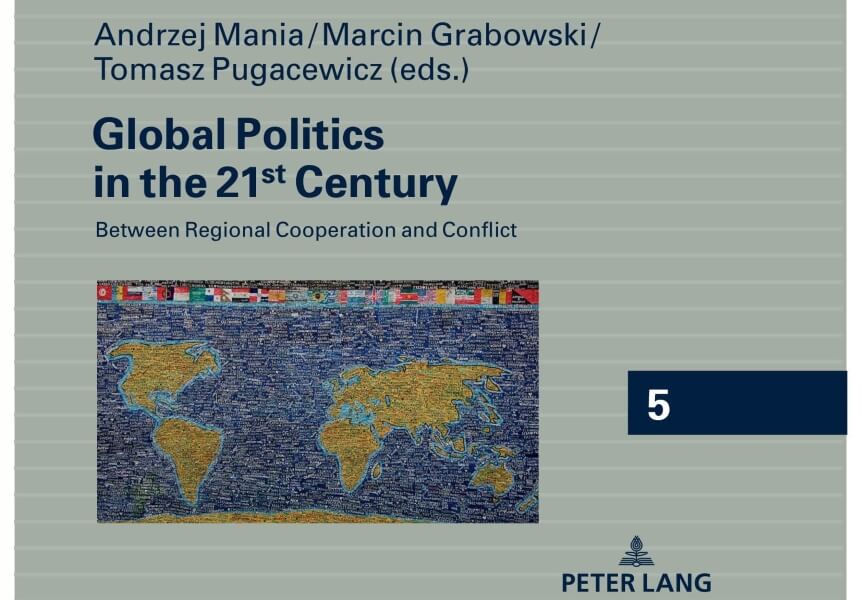 Отображение сетевого контента
Отображение сетевого контента
 Отображение сетевого контента
Отображение сетевого контента
 Отображение сетевого контента
Отображение сетевого контента
Global Politics in the 21st Century - nowa publikacja pod redakcją pracowników naszego Wydziału
Uprzejmie informujemy, że w wydawnictwie Peter Lang ukazała się praca pod redakcją Andrzeja Manii, Marcina Grabowskiego i Tomasza Pugacewicza
Redaktor: Andrzej Mania, Marcin Grabowski, Tomasz Pugacewicz (eds.)
Tytuł publikacji
- w języku angielskim: Global Politics in the 21st Century: Between Regional Cooperation and Conflict
Nazwa wydawnictwa: Peter Lang Verlag
Miejsce i data wydania: Berlin 2019
Ilość stron: 208
Ilość arkuszy wydawniczych: 18,5
Numer ISBN/ISSN: 978-3-631-78418-1
Seria: International Relations in Asia, Africa and the Americas: Politics, Economy, Society - Transdisciplinary Perspectives
Ilość punktów: 25/80 (stara/nowa punktacja)
Inne - fragment książki dostępny jest na stronie:
https://www.academia.edu/39186996/Global_Politics_in_the_21st_Century_Between_Regional_Cooperation_and_Conflict_eds._Andrzej_Mania_Marcin_Grabowski_Tomasz_Pugacewicz_
Słowa kluczowe
- w języku polskim: regionalizm, integracja regionalna, globalizacja, Azja, Afryka, Europa
- w języku angielskim: regionalism, regional integration, globalization, Asia, Africa, Europe
Opis publikacji:
This book focuses on the problem of regionalism, the crucial phenomenon in international relations at the turn of the 20th and 21st centuries. Regionalism is analyzed both in terms of regional economic and political integration, as well as regional competition and conflict. The book is divided into three parts, based on the functional and geographical criteria. The part is devoted to the theoretical setting, including brief introduction to regionalism problems and classical theories of integration, as well as new approaches to regionalism, which are followed by the analysis of regions in the context of regional security complexes concept. The second part of the book focuses on Asian and African challenges to regionalism and the third, and final, part is devoted to the most developed subregional order, namely the European region.






